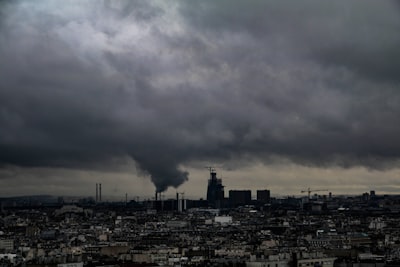Summary
A record-breaking heatwave has enveloped much of Europe, with France placing 84 out of its 96 mainland regions under its second-highest heat alert and similar warnings issued across Spain, Portugal, Italy, Germany, the UK, and the Balkans. Temperatures have soared to unprecedented highs—reaching 46°C in parts of Spain and Portugal, near 40°C in Greece, and shattering records in Bosnia, Serbia, and Slovenia. The impacts are severe: schools and festivals have closed, health services are stretched, rivers like the Rhine hit dangerously low levels, and wildfires are raging across southern Europe and Turkey. UN officials and climate experts are underscoring the link between these extreme conditions and anthropogenic climate change, warning that such events are only going to intensify without urgent adaptation and mitigation.
Analysis
The current European heatwave is alarming not just in its intensity but in its breadth: nearly every region in France is under heightened alert, and numerous countries are facing simultaneous records. The immediate causes lie in meteorological conditions, but the underlying driver is clear: rising greenhouse gas concentrations are making extreme temperatures more frequent and intense, as outlined by the UN’s Intergovernmental Panel on Climate Change (IPCC).
There are multiple consequences already in play. Public health systems are under strain, with increases in heatstroke cases and vulnerable groups at elevated risk. Economic repercussions are visible in disrupted river transport, school closures, and reduced productivity. Ecologically, wildfires and quickly melting glaciers worsen the already precarious state of Europe’s natural systems. Politically and ethically, the crisis exposes gaps in preparedness and heightens the urgency for both mitigation and adaptation—calls echoed by officials, but constrained by policy inertia and global disagreements over fossil fuel use.
The article leans on official sources and scientific consensus, providing important data while framing the crisis as both immediate and systemic. Yet, while it references adaptation and mitigation, there is less exploration of political barriers or the complex socio-economic dimensions—such as the impact on social inequality, marginalized communities, or transnational migration pressures.
Discussion
This heatwave matters because it is no longer a distant or abstract threat: climate change has arrived in visceral, life-threatening form for millions of Europeans. The crisis highlights how unprepared even the wealthiest nations can be, and how the old normal is rapidly receding. We are seeing, in real time, the cascading effects of a warming world—from natural disasters to societal disruption.
It also raises hard questions: How rapid and transformative can climate policy be when confronted with repeated emergencies? Are public health and social structures resilient enough to cope with chronic, escalating disruptions? As temperatures soar, so too could tensions between different regions and economic interests—over water, energy, healthcare, and migration.
On a global level, Europe’s experience is a stark preview of what many lower-income nations have already been enduring, often with far fewer resources. The ethical imperative is growing: to invest not just in emergency response or cooling centers, but in reducing emissions, reimagining urban spaces, reshaping energy systems, and building community resilience.
As these record-breaking events become more common, the lesson is clear: adaptation alone is not enough. Without drastic cuts in emissions and fundamental shifts in economic and political models, Europe and the world will continue to experience—and normalize—the abnormal. The time for incrementalism is over; unprecedented times require unprecedented action.

Comments
No comments yet. Be the first to comment!